Overview
This logbook is a record of the majority of our attempts to PCR amplify CRISPR-associated (Cas) ABCDE and Cas 3 of E. coli K12 MG1655. The record begins after our attempt to individually PCR amplify each of the 6 genes, which was unsuccessful. Here, three different sets of primers were used to attempt PCR amplification of the Cas genes in two sections.
Notes
Suggested annealing temperatures are based on [http://www.neb.com/nebecomm/tech_reference/TmCalc/Default.asp NEB Tm Calculator], as called for in the [http://www.neb.com/nebecomm/tech_reference/polymerases/phusion_high.asp?&utm_source=Google&utm_medium=CPC&utm_term=+phusion&utm_campaign=Phusion NEB Phusion DNA Polymerase] protocol.
Desired band for CasABCDE at ~4300bp
Desired band for Cas3 at ~2667bp
Primer Round 1
July 17, 2011
CasABCDE: Touchdown PCR, Start Temp 70, -0.2 / cycle, Final Temp 64
Cas3: Touchdown PCR, Start Temp 63, -0.2 / cycle, Final Temp 57
Gel Results:
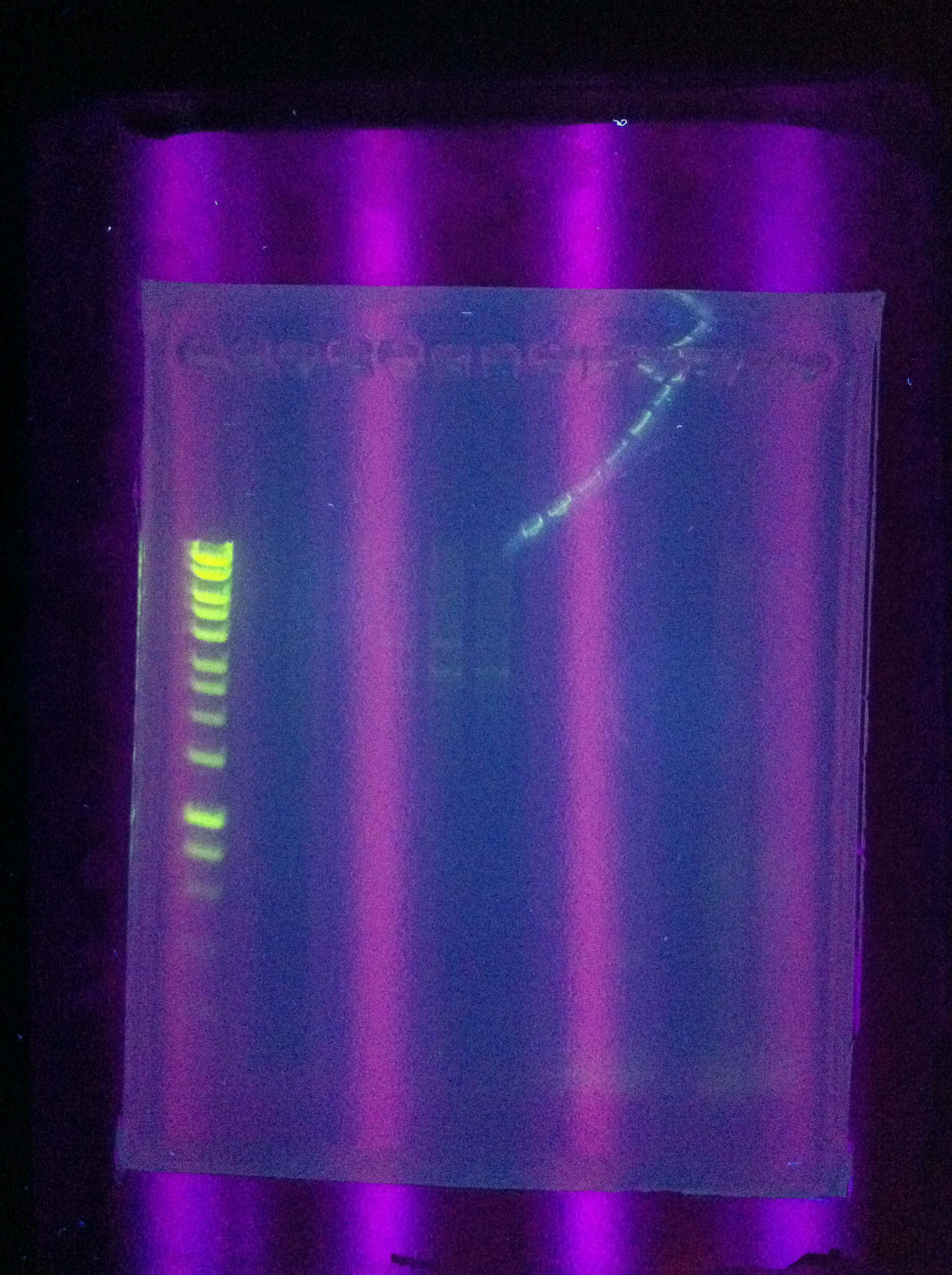
CasABCDE: Very faint bands near target length
Cas3: No bands
July 18, 2011
CasABCDE: Touchdown PCR, Start Temp 65, -0.2 / cycle, Final Temp 59
Gel Results:
CasABCDE: No bands
July 19, 2011
CasABCDE: Touchdown PCR, Start Temp 70, -0.2 / cycle, Final Temp 63
Cas3: Temp gradient with 3 rows from 72 to 55 (L to R: 55, 61.7, 71)
Gel Results:
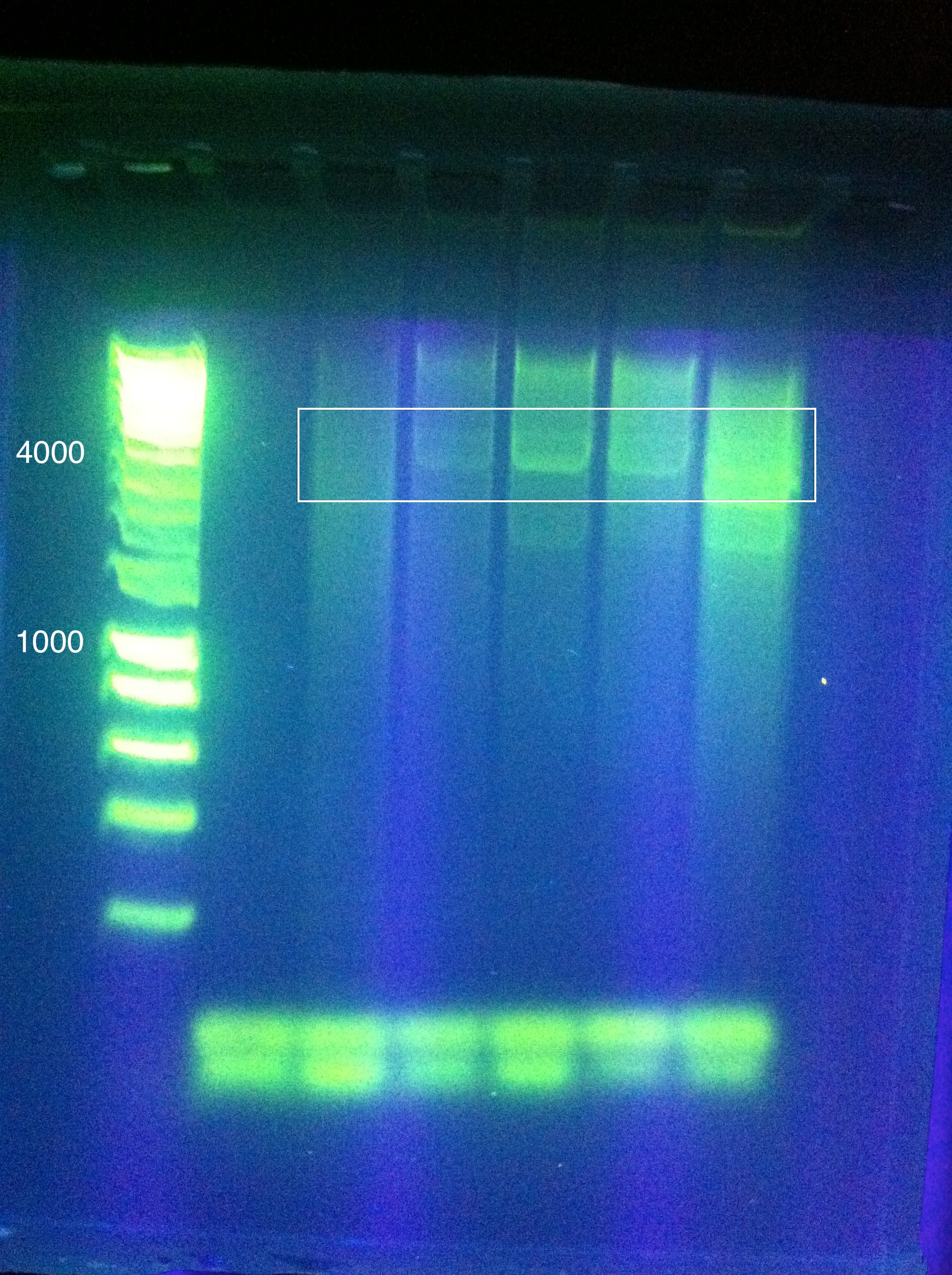
CasABCDE: Clearer bands around target length, primer dimers
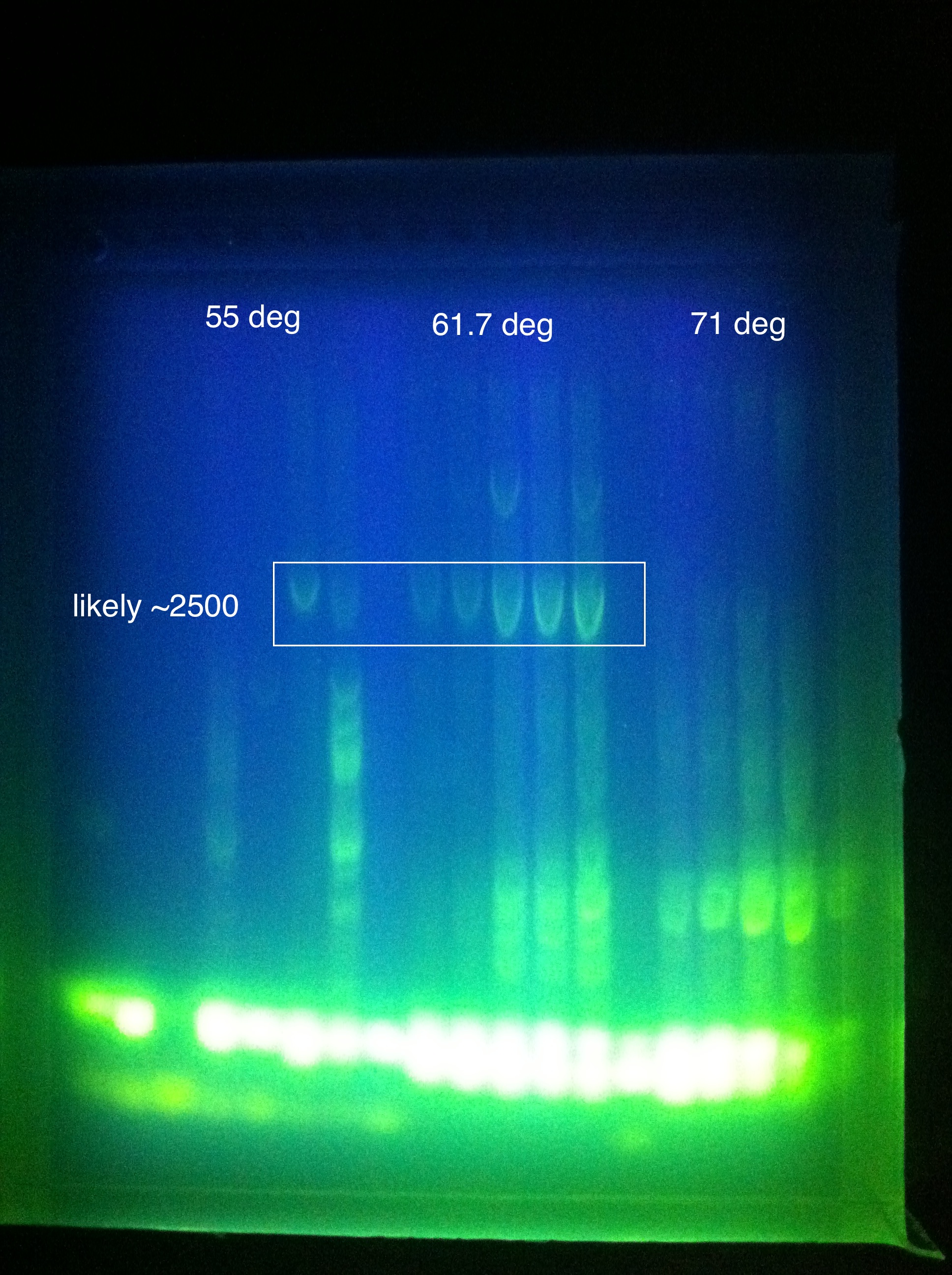
Cas3: Middle temperature was optimal, clear bands are visible (likely correct length, failed to run a hyperladder), primer dimers
July 20, 2011
CasABCDE: Touchdown PCR, Start Temp 71, -0.2 / cycle, Final Temp 64
Cas3: Gradient using tighter range around best temp from yesterday (65.6, 63.1, 61.2, 58.5)
Gel Results:
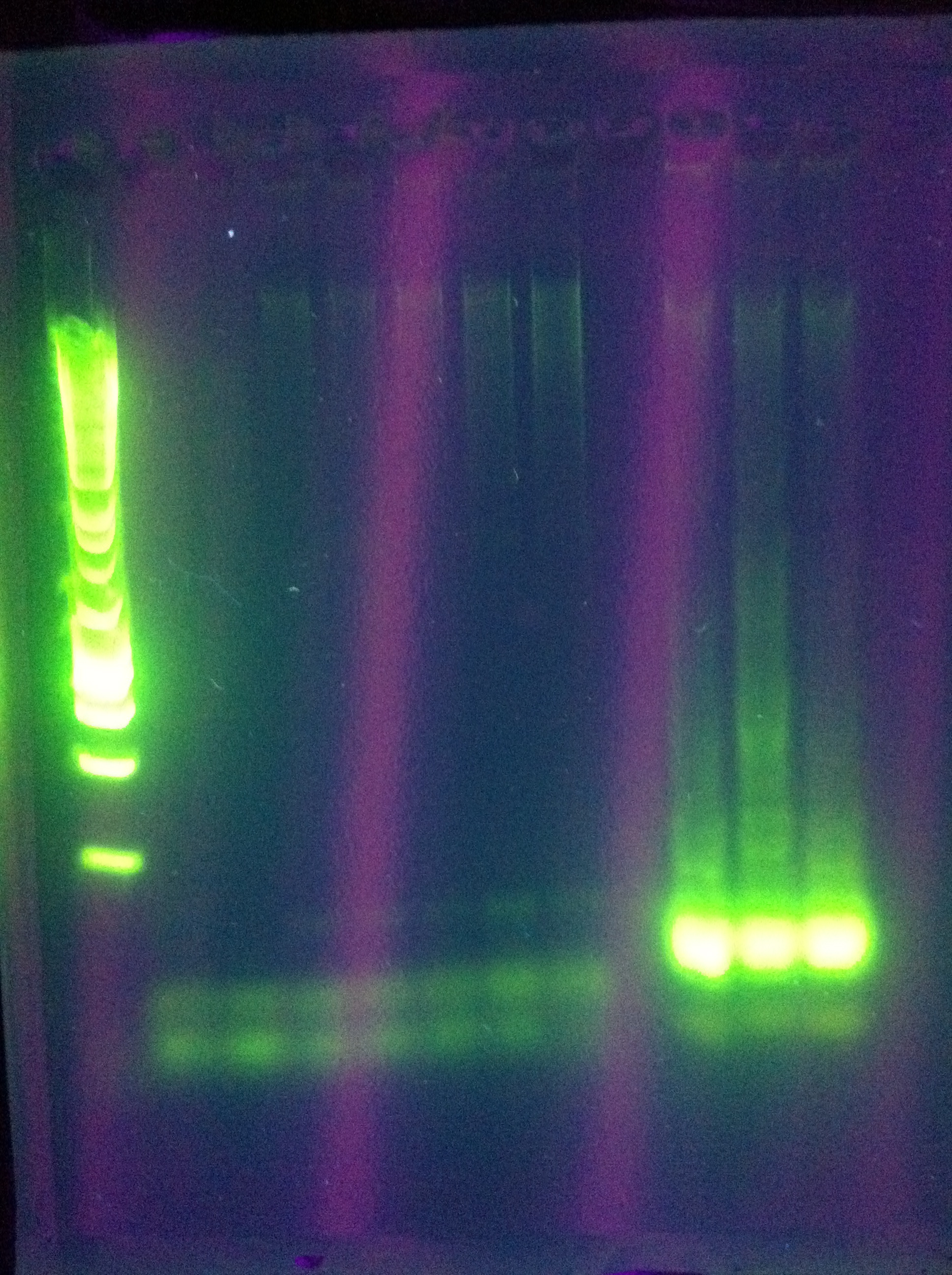
CasABCDE: Nonspecific, nothing usable, no bands in target range, dimerization
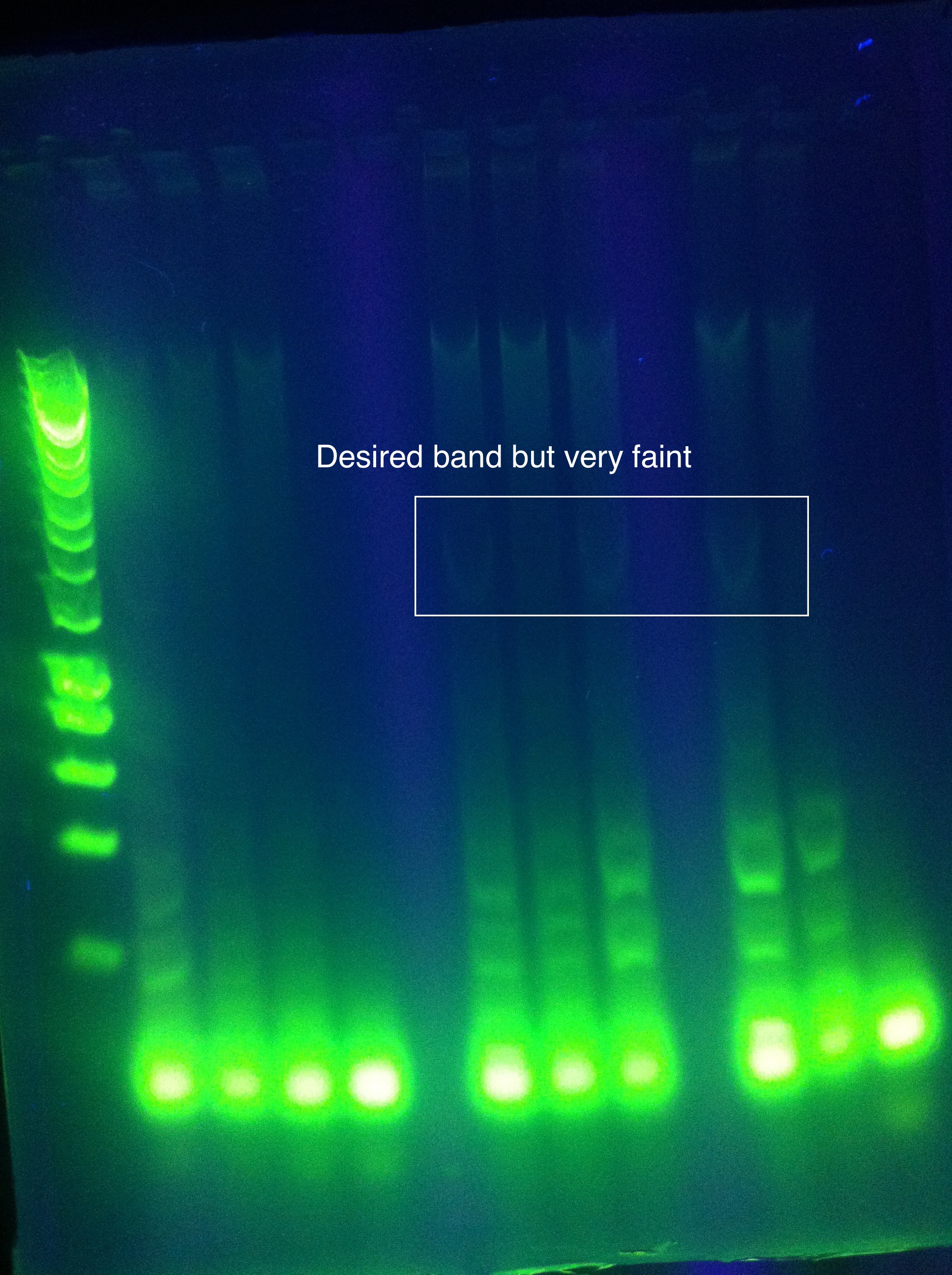
Cas3: Small band at correct location, primer dimers
July 24, 2011
PCR of CasABCDE, Cas3 with new settings; Preparation for extraction, "PCRception" (PCRing the PCR results); Included an elongation step in each cycle, which was not done for the previous runs; Settings stored in PCR machine as ABCDE724, CAS3724
CasABCDE Settings and Results:
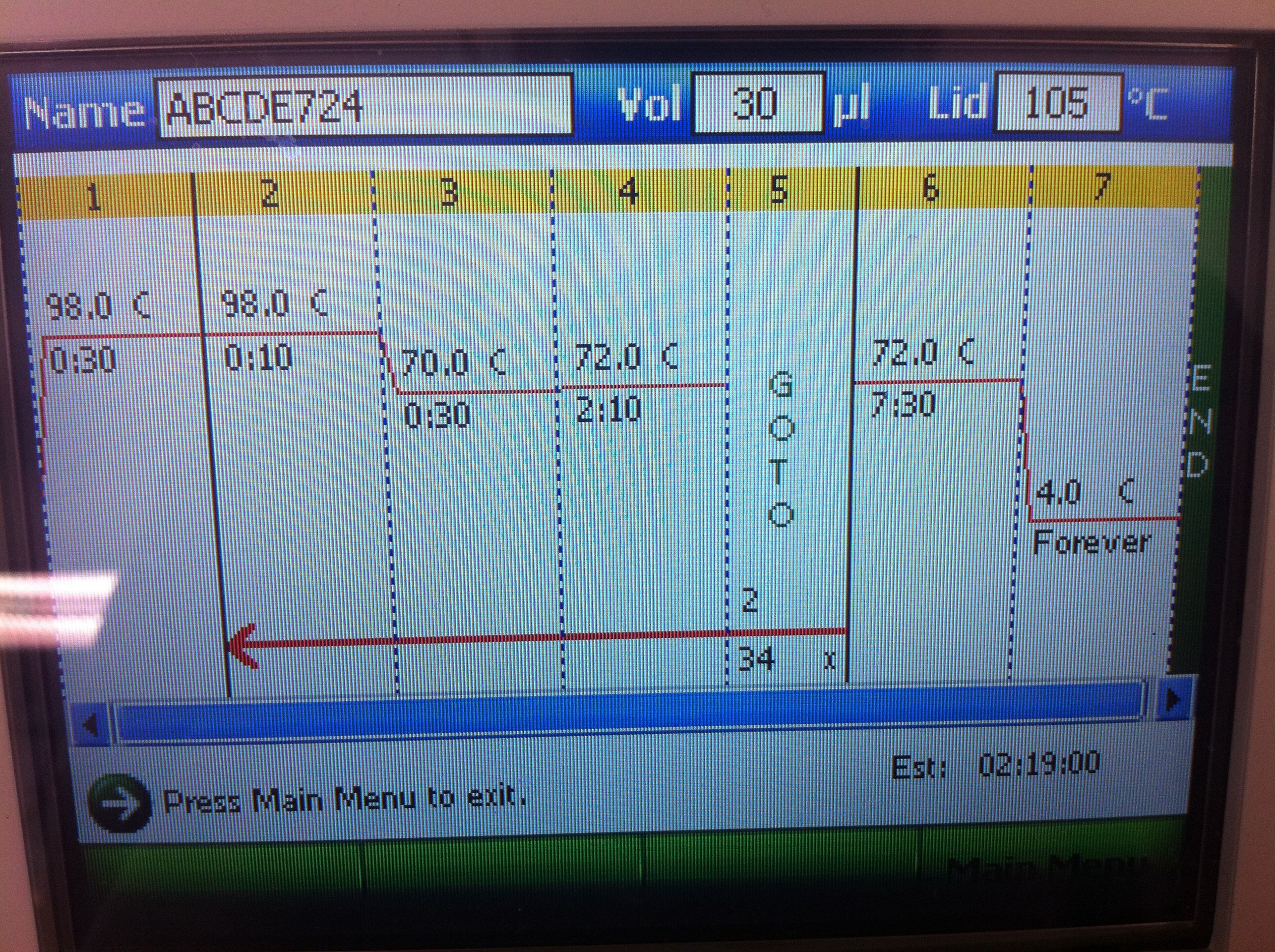
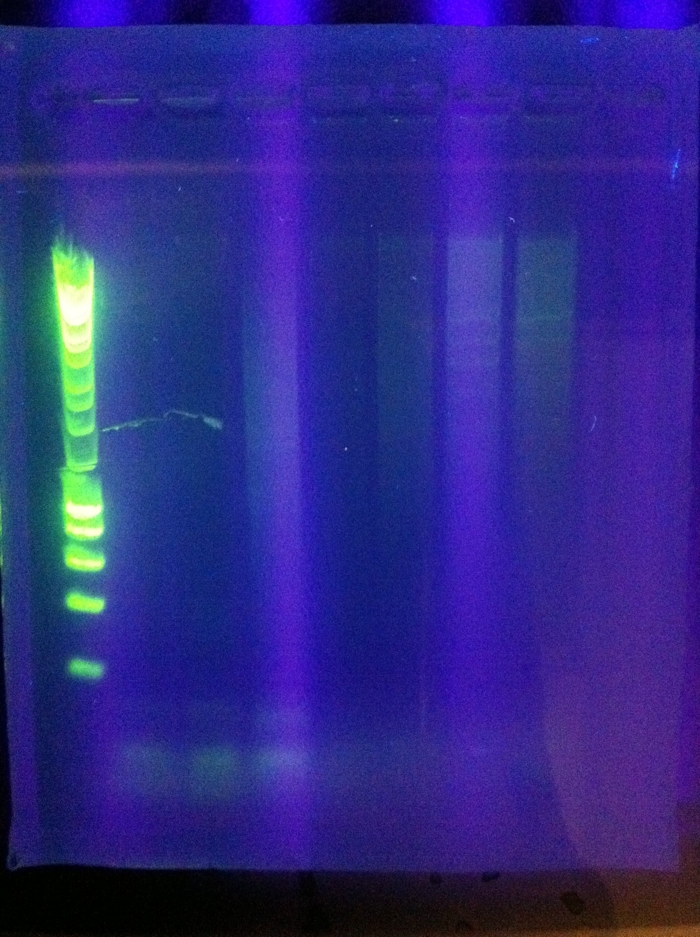
Nonspecific results, perhaps a hint of the correct bands in the second to last well
Cas3 Settings and Results:
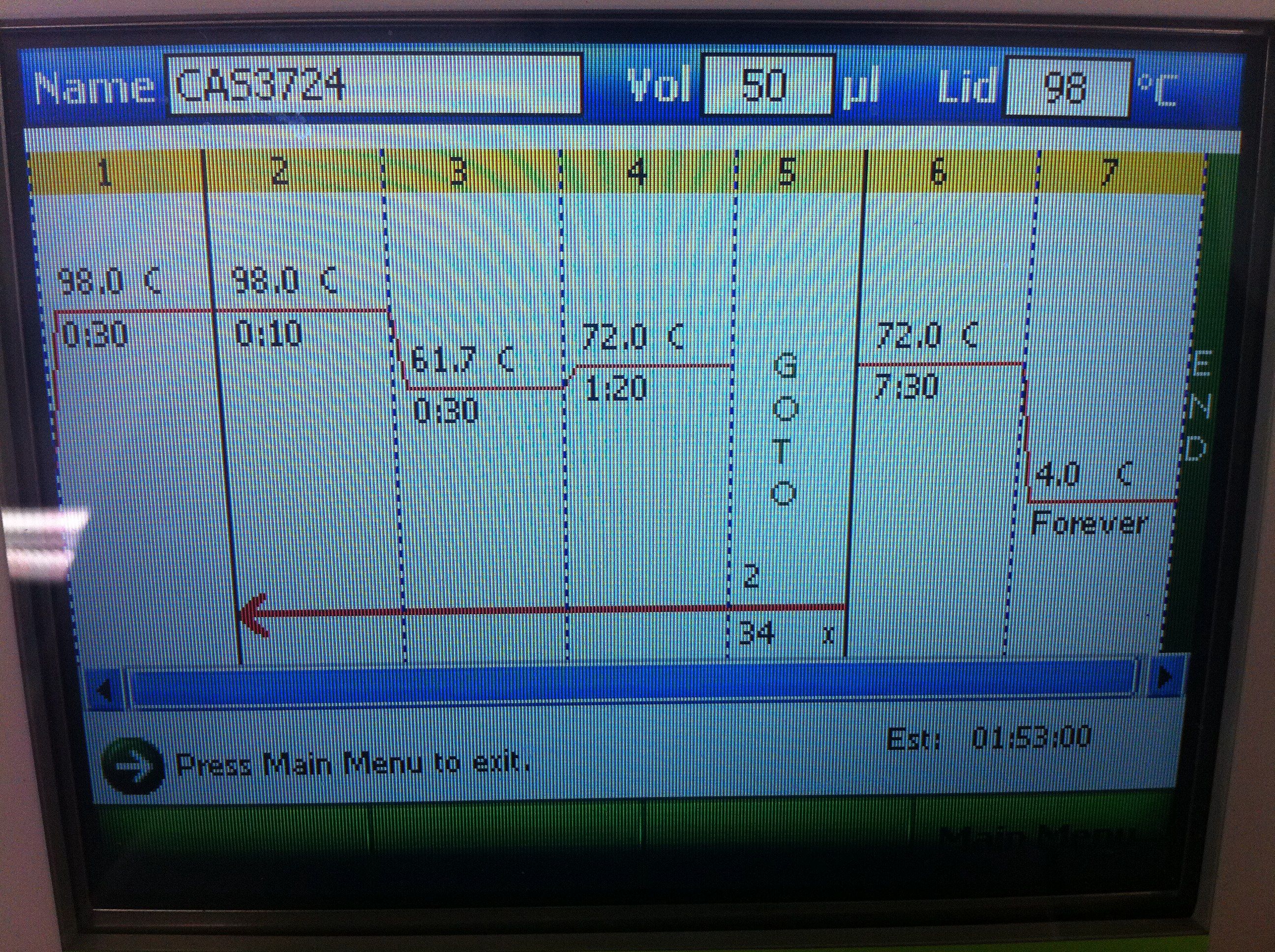
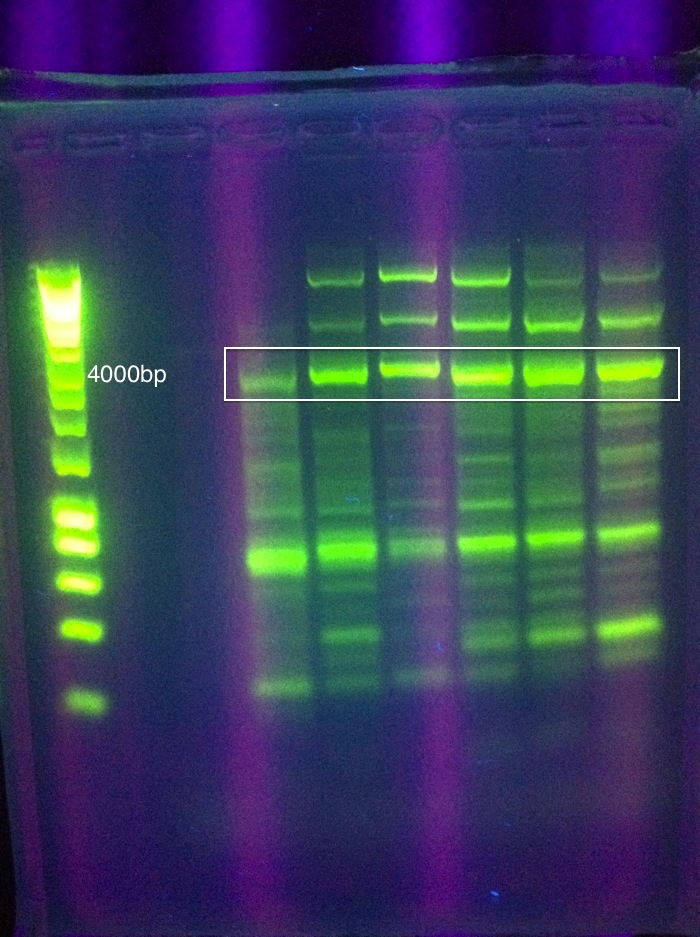
Success for Cas3!! Extracted the band that lies around ~2500 (target is 2600). However, sequencing results were not conclusive.
Primer Round 2
July 26, 2011
CasABCDE: 68 degree annealing temp, 2 minute elongation
Cas3: 62 degree annealing temp, 1:20 elongation
Gel Results:
CasABCDE: mostly blank
Cas3: broad nonspecific bands around desired area
July 27, 2011
CasABCDE (new): 64->69, three rows of 3 tubes
CasABCDE (old): 63->66, three rows of 3 tubes
Gel Results:
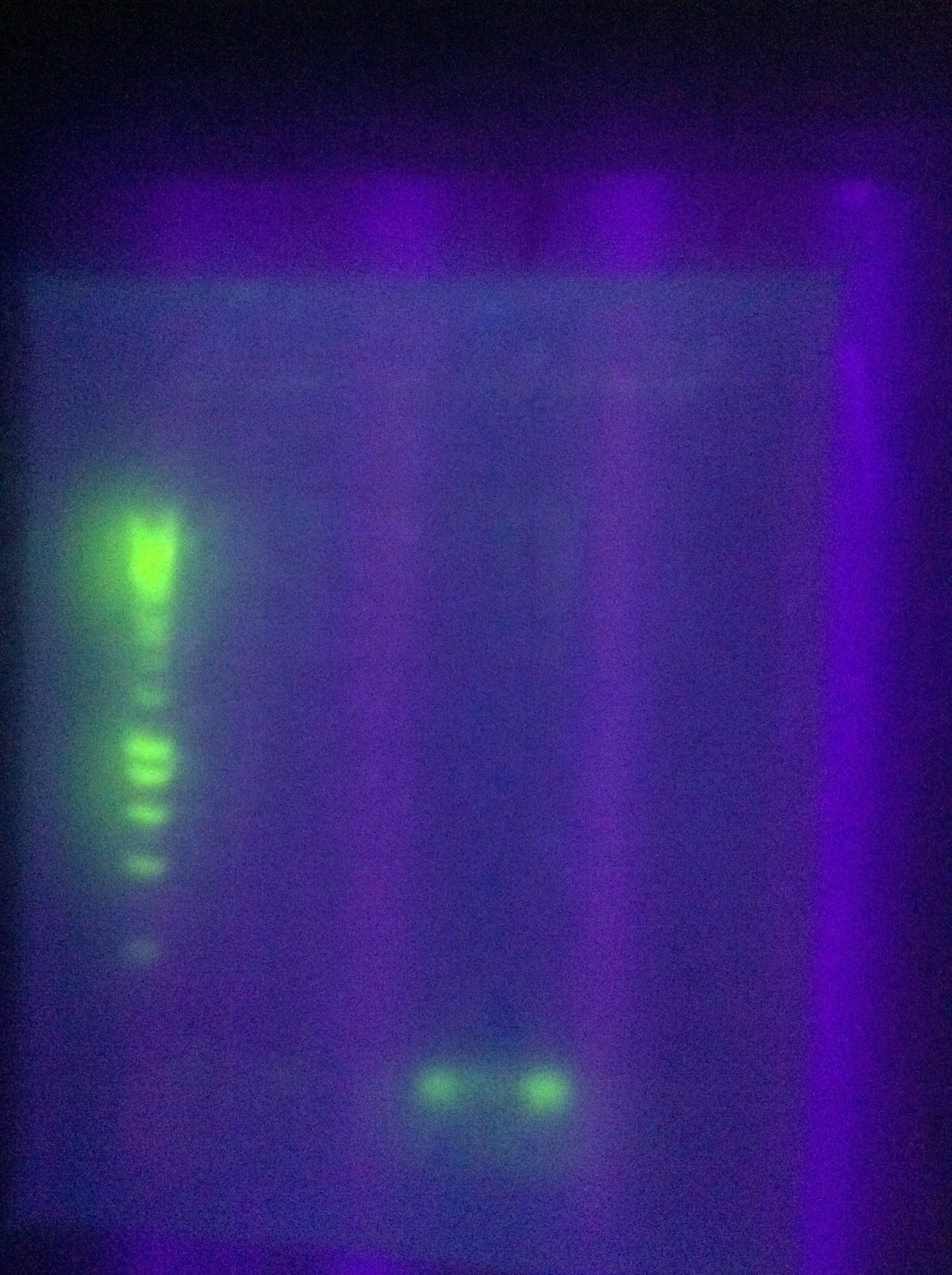
new: no good
old: mostly blank… not sure why this is. slight dimerization.
July 28, 2011
CasABCDE (old): TDWN728B, 71 to 68, -.1/cycle, 30 cycles, 2:10 elongation
CasABCDE (new): TDWN728B, 72 to 65, -.2/cycle, 35 cycles, 2:10 elongation</p>
Gel Results:
new: no good
old: no good
July 29, 2011
CasABCDE: 68 Touchdown from 72 to 65, -.2/cycle, 35 cycles, 2:10 elongation
Gel Results:
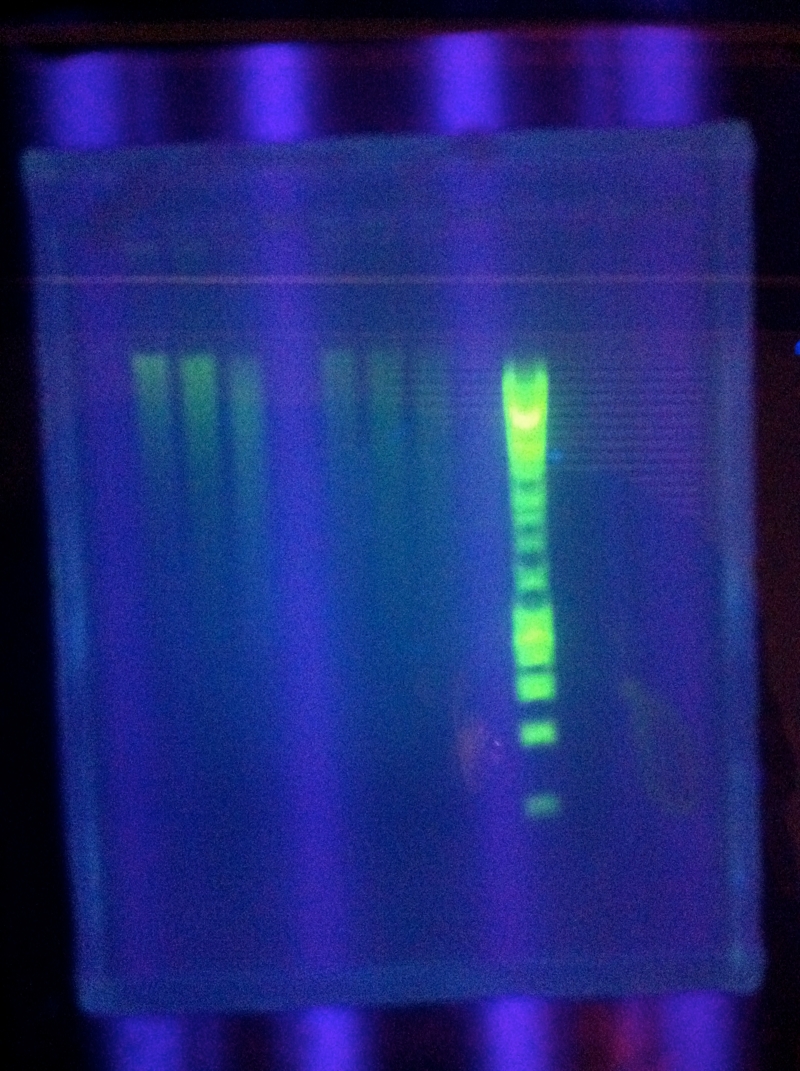
No good
August 9, 2011
Cas3: Ran Cas3724 protocol
Gel Results:
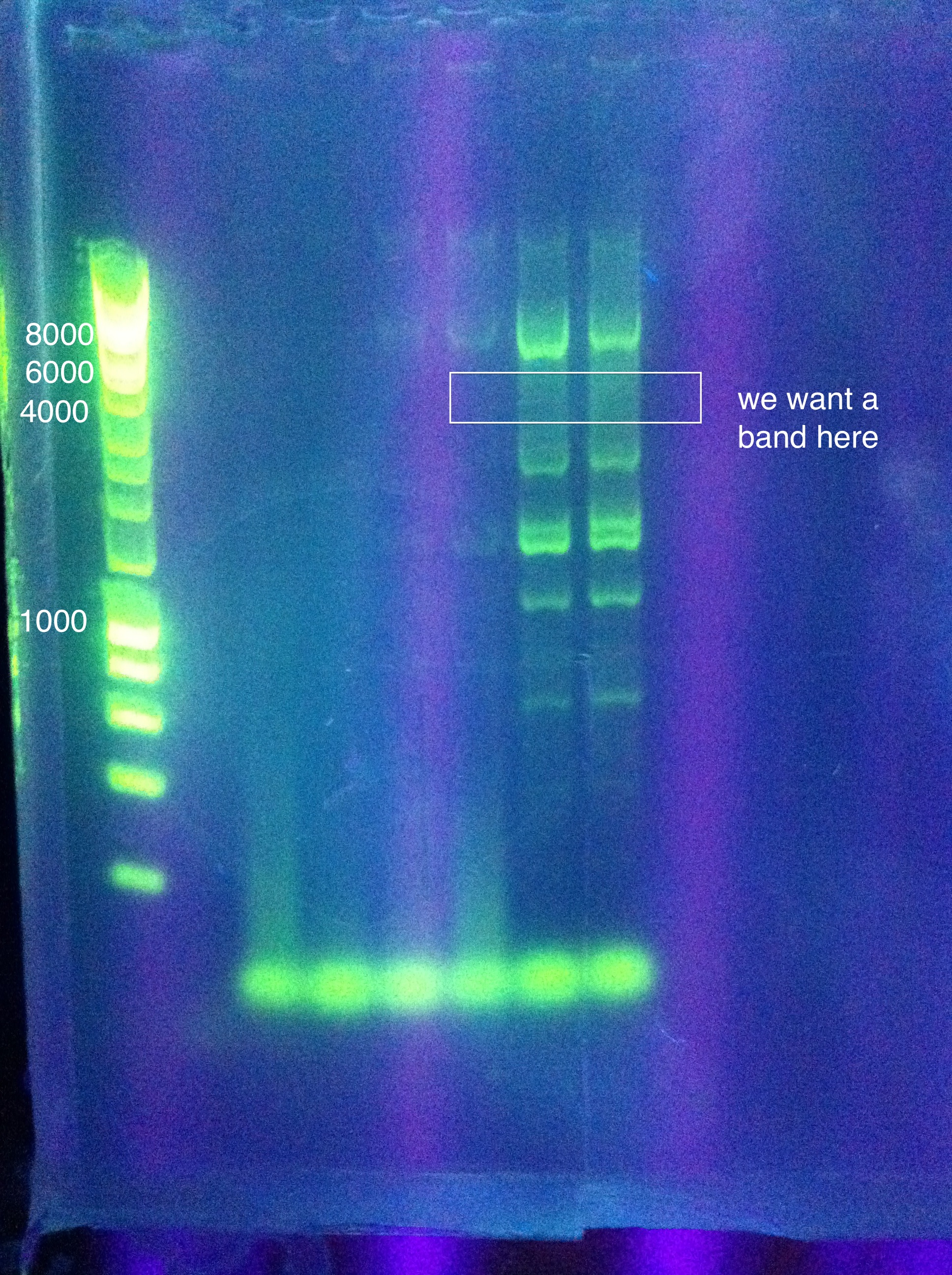
new: no good
Primer Round 3 (CasABCDE only)
August 4, 2011
Settings: 98 initial denaturation for 30 seconds, Cycle (10sec at 98deg, anneal 30 sec at 63 deg, elongate 130sec at 72deg), 35 Cycles, Extension for 450 seconds
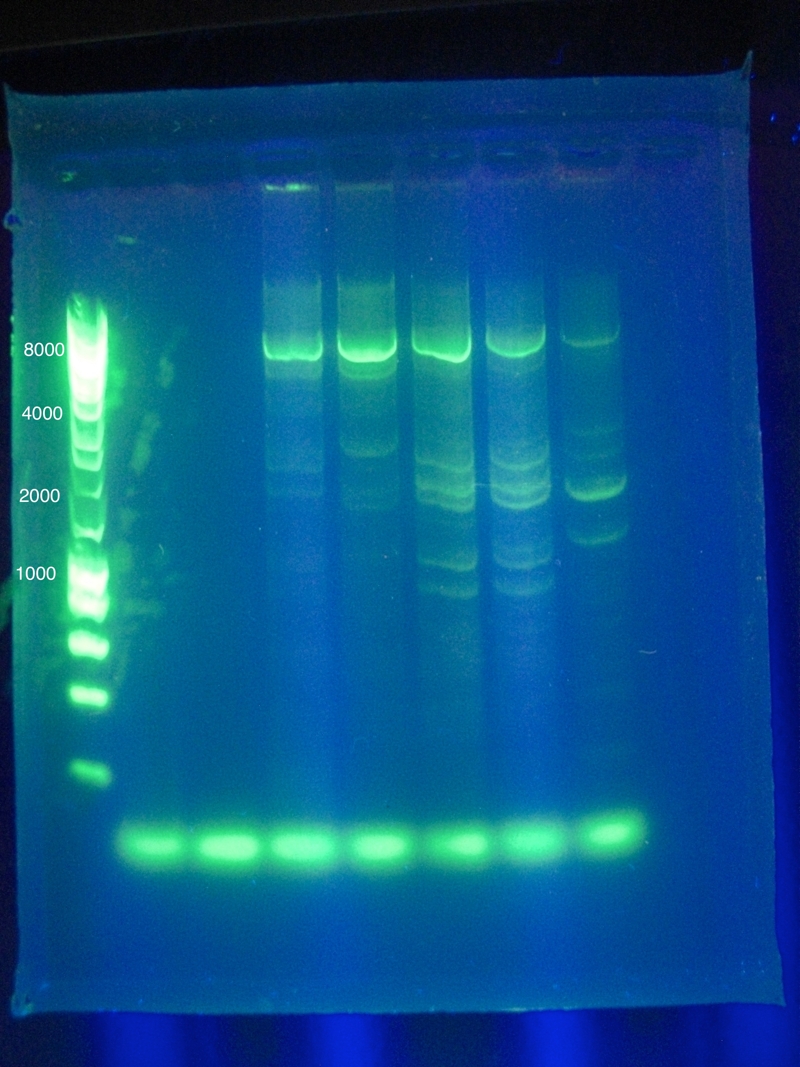
Results show a band above where we think it ought to be (6 to 8 kbp instead of 4.3)
However, this was extracted and an attempt at a nested PCR was made using the same settings to try and amplify this band even further. The results were blank.
August 8, 2011
Settings:ABCDE808, which is same as 8/4 run but only 29 cycles in the hope that the bright band from the previous try would be the only one visible.
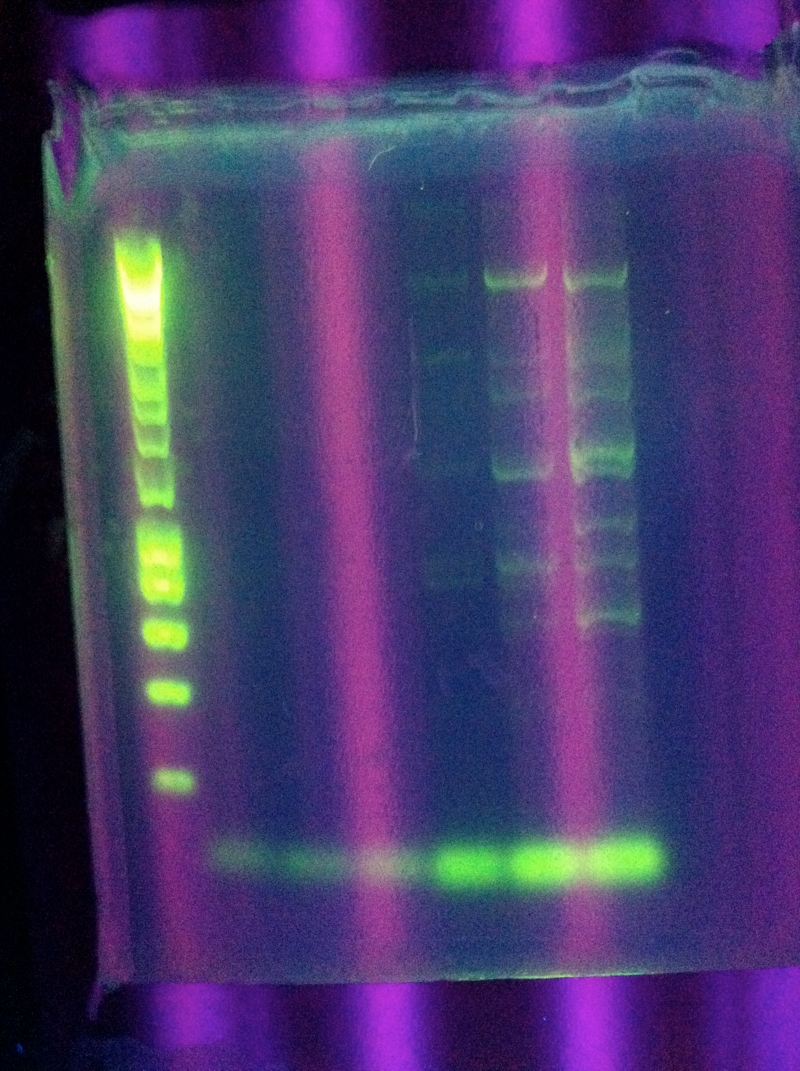
Looks very similar to previous results. Again, a band above where we would like to see it.
August 8, 2011
Settings: Retry same protocol in thermocycler, however increase back to 35 cycles.
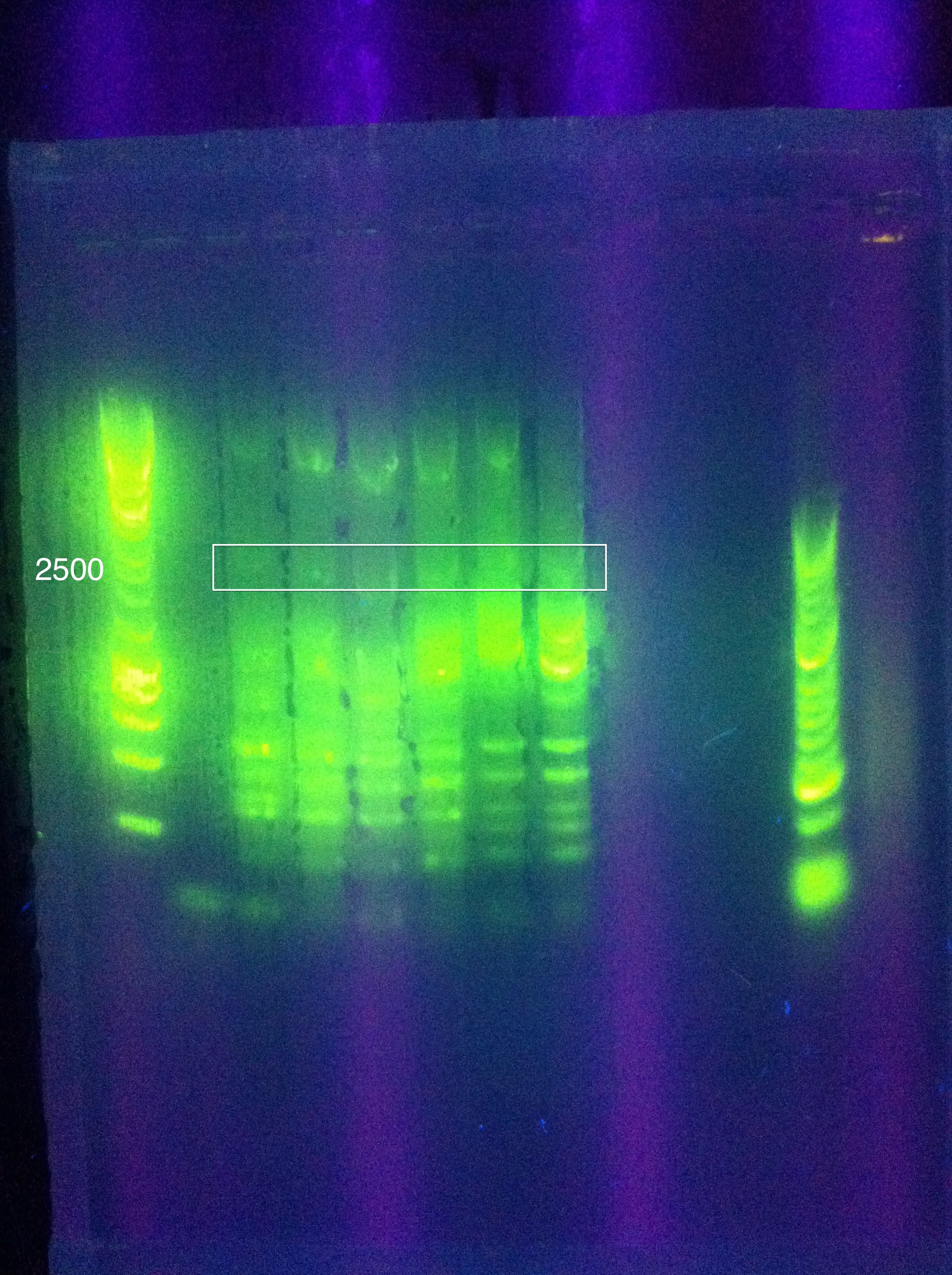
Not as good as the original run, though there may be faint bands where we would like to see them. For some reason the brightest band is again somewhere between 6k and 8k (though it's a bit hard to tell because the ladder curves annoyingly at the top), instead of the desired 4300. However, we have ordered the nested PCR primers, so perhaps that will offer a better solution to getting Cas ABCDE. In the meantime, we'll focus again on Cas3 and try to extract that and get a good sequencing result so we can say definitively that we have it.
August 10, 2011 (Evening)
Settings: Ran another PCR for ABCDE, same settings as before but one degree higher for annealing temp. Also added DMSO.
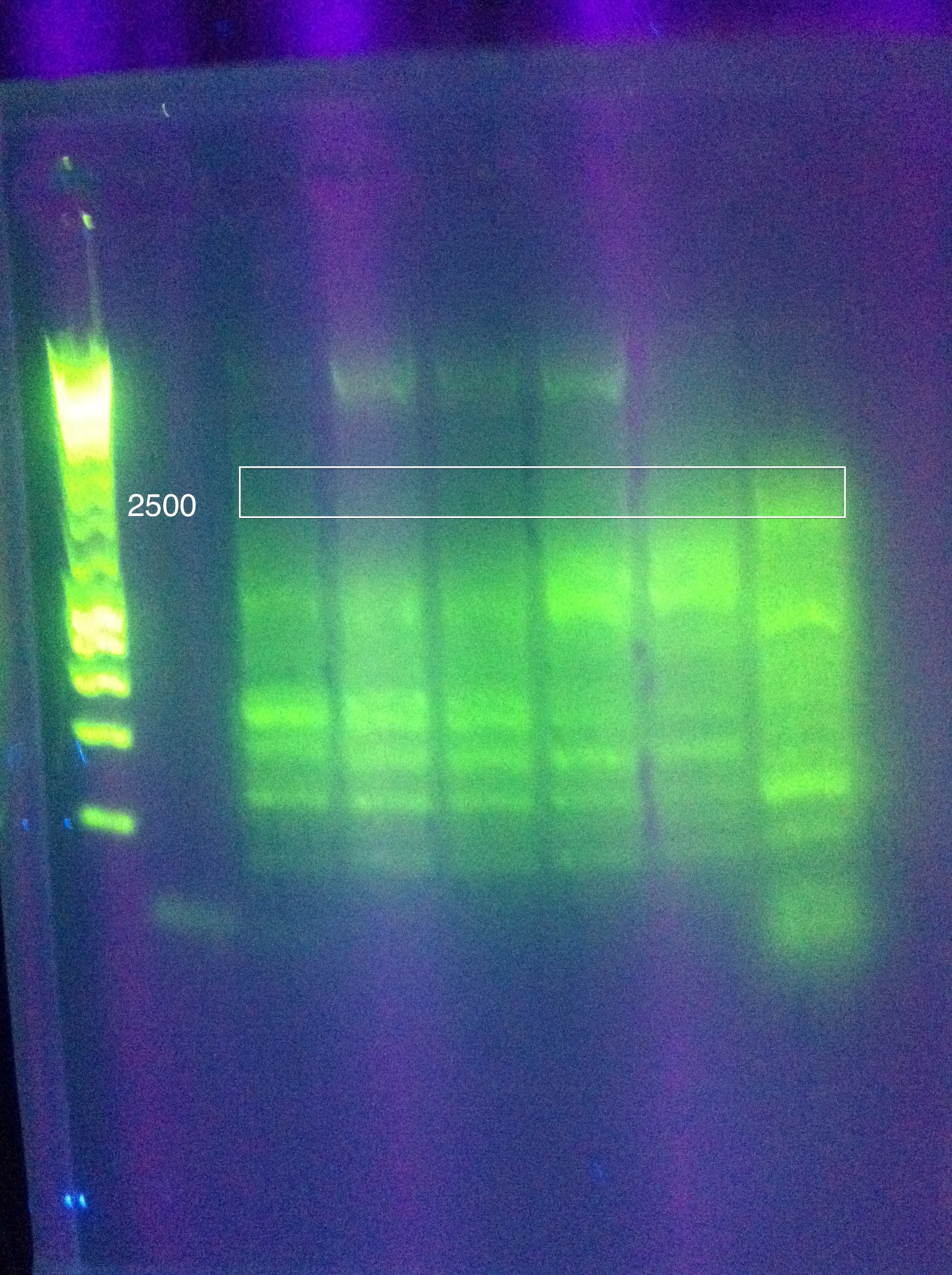
Similar result, less bands from DMSO but consequently much fainter bands. Dimerization still evident.
August 11, 2011
Temperature Gradient PCR
CasABCDE: MgCl2 --> 2uL, 4uL, 5uL, Temp --> 60, 63, 66, 69
Cas3: MgCl2 --> 2uL, 4uL, 5uL, Temp --> 60, 62, 64, 66
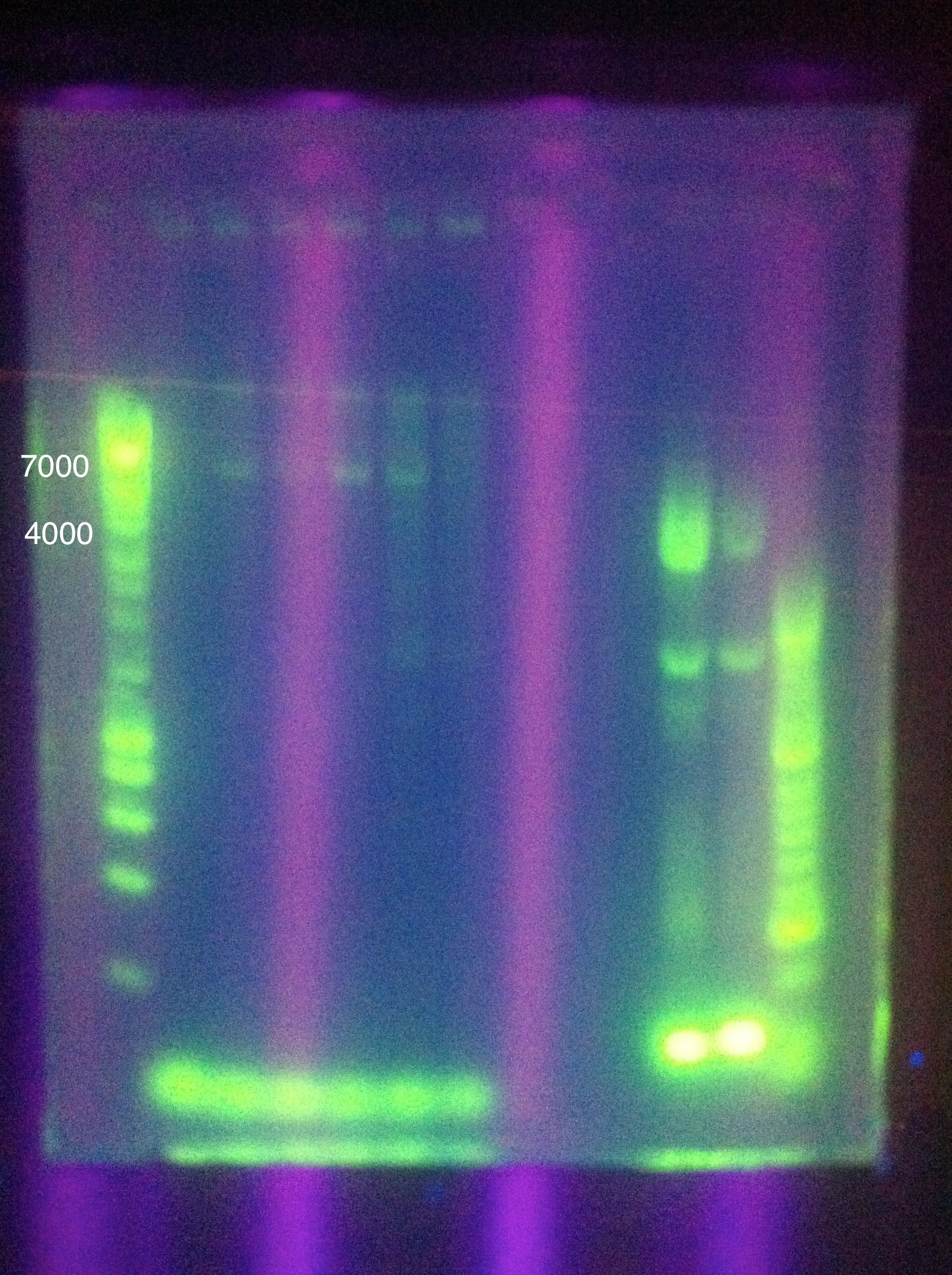
CasABCDE: No bands
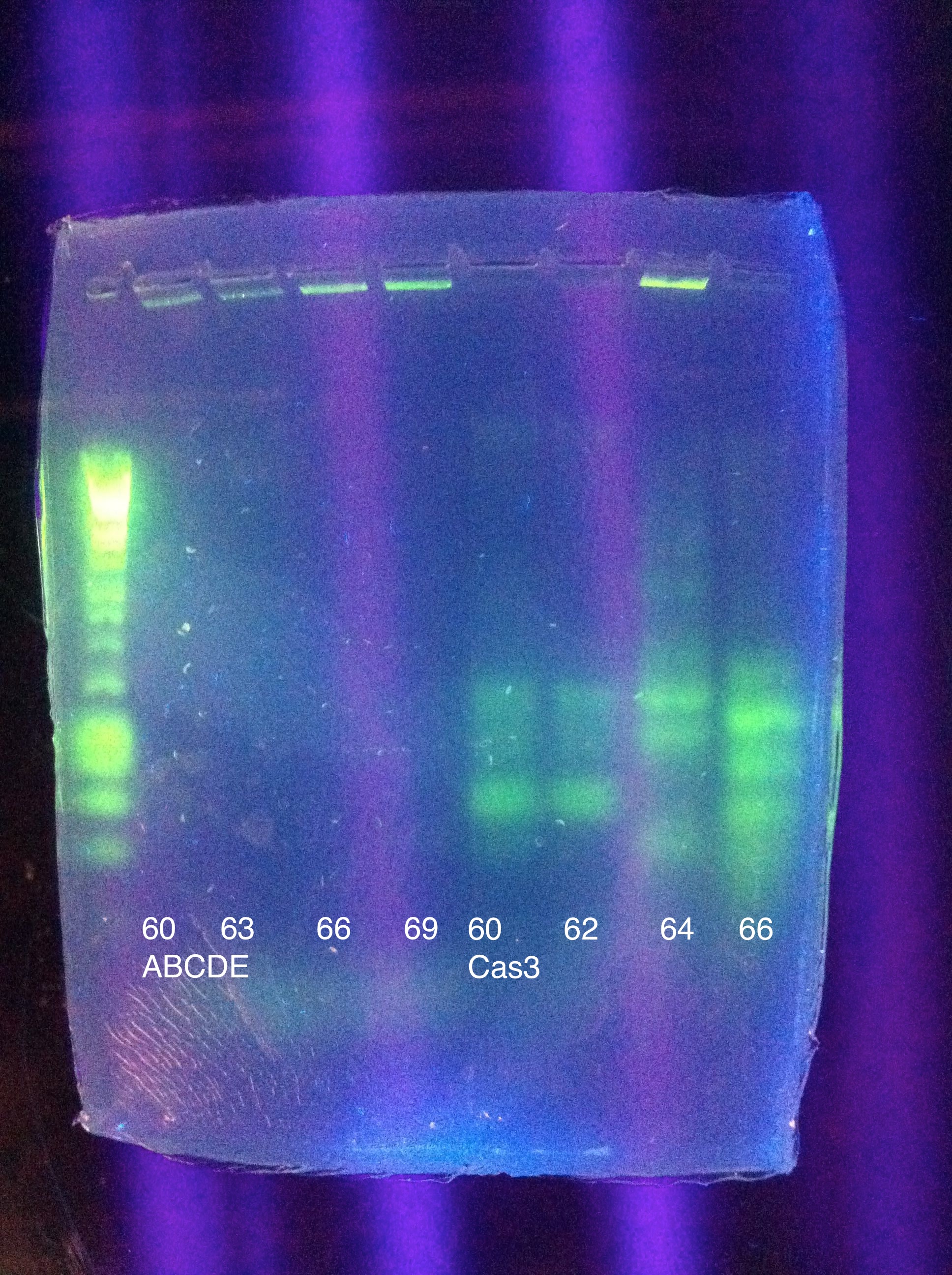
Cas3: 60 and 62 have bands less than our desired target, up to perhaps 1500; 64 had a couple of bands above this, perhaps one faint one near our 2600 target; 66 had more nonspecific amplification, and no clear bands in our target range
Moving forward to nested PCR for ABCDE, we will see how this goes. Cas3 we'll have to keep trying…perhaps it may be worth it to try DMSO, longer elongation time, something. Maybe Taq.
August 12, 2011
- PCR using Nest primers for ABCDE
- Tm1: 74, Tm2: 77 --> Anneal at 72 deg (higher than this is not recommended)
- Used 2-step Phusion protocol
- 98 deg for 30 sec
- {98deg for 10 sec, 72 deg for 2:30} X 35 cycles
- Extension for 7:30 at 72 deg
- Held at 4deg until run was cancelled
Gel Results:
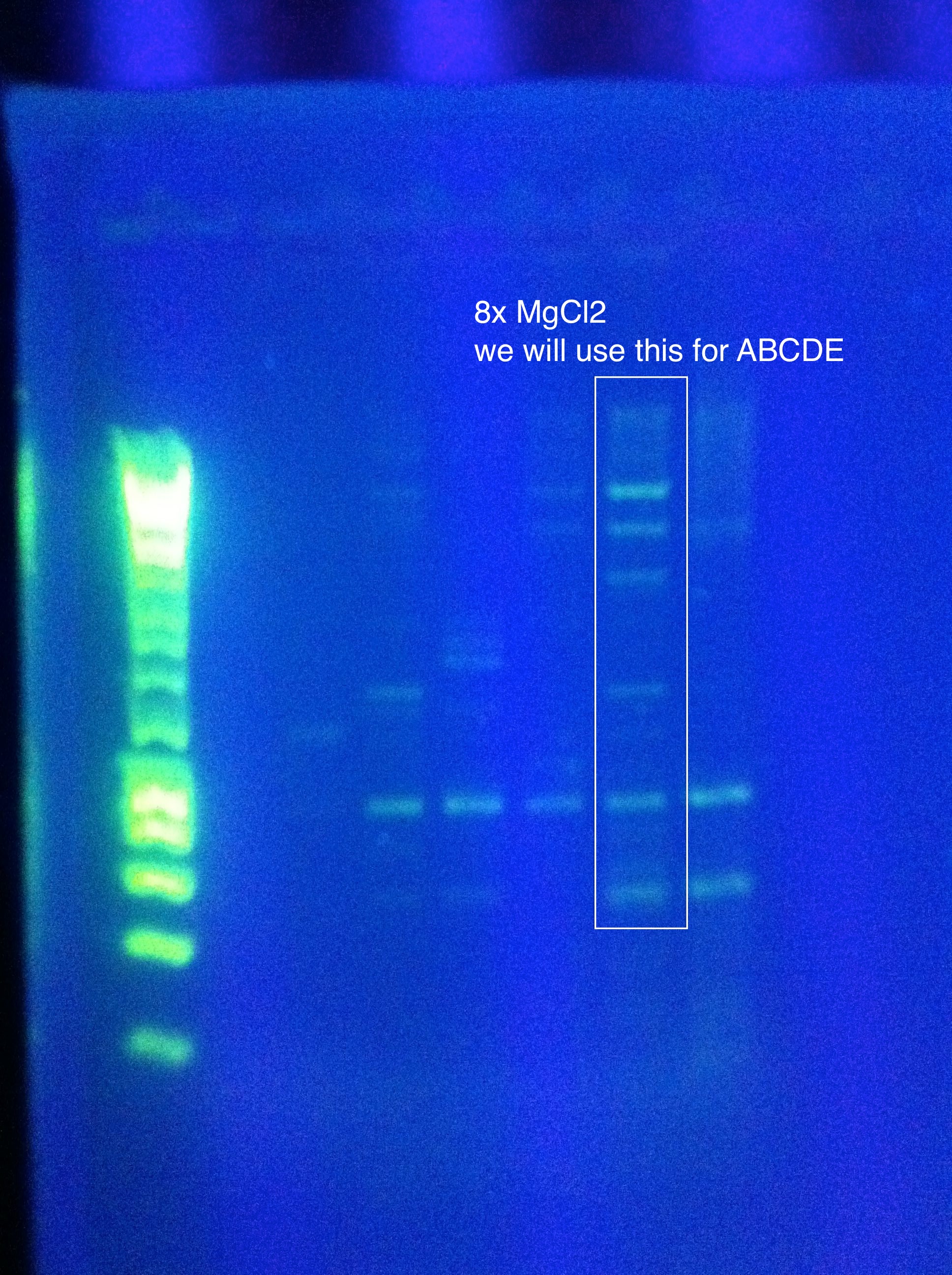
The 8x MgCl2 tube has the best result
Nice clear bands at around 600, 1k, 2k, 4k, 6k, 8k
PLAN: use this as template for ABCDE PCR
Use 1uL per tube (note, we don't know the concentration of the strand we want as template, so this is our best guess as to what would get us between 1pg and 10ng as recommended by the Phusion protocol for non-genomic DNA)
 "
"



















